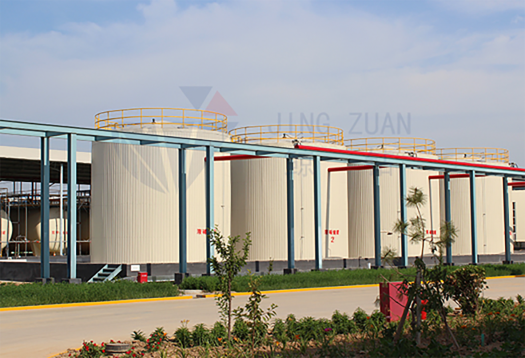
Nov . 12, 2024 05:29 Back to list
hydroxyethyl cellulose uses
Understanding the Uses of Hydroxyethyl Cellulose
Hydroxyethyl cellulose (HEC) is a water-soluble polymer derived from cellulose, a natural polymer found in plant cell walls. With its exceptional properties, HEC has found applications across various industries. This article will explore the diverse uses of hydroxyethyl cellulose, highlighting its significance in multiple sectors.
1. Personal Care and Cosmetics
One of the most prominent applications of hydroxyethyl cellulose is in the personal care and cosmetics industry. HEC is commonly used as a thickening agent in lotions, creams, shampoos, and conditioners. It enhances the texture and viscosity of these products, providing a desirable consistency that consumers appreciate. Additionally, HEC acts as a film-forming agent, helping to create a protective layer on the skin and hair, which aids in moisture retention. Its ability to stabilize emulsions further lends itself to formulations requiring a uniform blend of oil and water.
In the pharmaceutical industry, hydroxyethyl cellulose serves as a crucial excipient. It is utilized as a binding agent in tablet formulations, ensuring that active ingredients are evenly distributed and remain stable throughout the shelf life. Moreover, HEC is employed in the preparation of controlled-release formulations, allowing for the gradual release of medication over time. This controlled delivery system enhances the therapeutic effects of certain drugs, minimizing side effects and improving patient compliance. Hydroxyethyl cellulose is also used in eye drops as a viscosity-increasing agent to improve the comfort and effectiveness of ophthalmic solutions.
3. Construction
The construction industry benefits significantly from hydroxyethyl cellulose due to its water-retention properties. HEC is commonly added to cement-based products, such as mortars and plasters, to extend open time and enhance workability. By retaining moisture during the curing process, HEC helps prevent cracking and improves the overall durability of the construction materials. Additionally, its thickening properties allow for better adhesion and reduces sagging in vertical applications, making it a preferred choice for construction professionals.
hydroxyethyl cellulose uses

4. Food Industry
While it may seem unconventional, hydroxyethyl cellulose is also utilized in the food industry. It acts as a thickening and stabilizing agent in various food products, including sauces, dressings, and dairy items. HEC helps improve the texture and mouthfeel of these products while ensuring uniform distribution of ingredients. Furthermore, its ability to retain moisture can extend the shelf life of certain food items, making it a valuable additive in food preservation.
5. Agriculture
In agriculture, hydroxyethyl cellulose plays a role in soil conditioning and seed coating. When mixed with water, HEC creates a gel-like consistency that helps retain moisture in the soil, promoting healthy plant growth. It is also used in seed coatings to facilitate better seed germination and protect seeds from environmental stressors. As a biodegradable polymer, HEC aligns with sustainable agricultural practices, contributing to eco-friendly farming solutions.
6. Adhesives and Coatings
Hydroxyethyl cellulose is widely used in the formulation of adhesives and coatings. Its excellent thickening properties allow for controlled application and enhanced adhesion to various surfaces. In paints and coatings, HEC helps improve the application properties, such as leveling and spreading, ensuring a smooth finish. Additionally, it can increase the stability of aqueous-based adhesives, making it a popular choice in the manufacturing of woodworking adhesives and laminates.
Conclusion
From personal care and cosmetics to pharmaceuticals, construction, food industry applications, agriculture, and adhesives, hydroxyethyl cellulose demonstrates remarkable versatility. As a natural polymer, HEC offers a range of benefits, including thickening, stabilizing, and moisture-retaining properties. Its continued use across various sectors underscores its importance in modern formulations, contributing to improved product performance and enhanced user experiences. As research and technology advance, the potential applications of hydroxyethyl cellulose are likely to expand further, making it a compound worth watching in the future of multiple industries.
-
Versatile Hpmc Uses in Different Industries
NewsJun.19,2025
-
Redispersible Powder's Role in Enhancing Durability of Construction Products
NewsJun.19,2025
-
Hydroxyethyl Cellulose Applications Driving Green Industrial Processes
NewsJun.19,2025
-
Exploring Different Redispersible Polymer Powder
NewsJun.19,2025
-
Choosing the Right Mortar Bonding Agent
NewsJun.19,2025
-
Applications and Significance of China Hpmc in Modern Industries
NewsJun.19,2025







